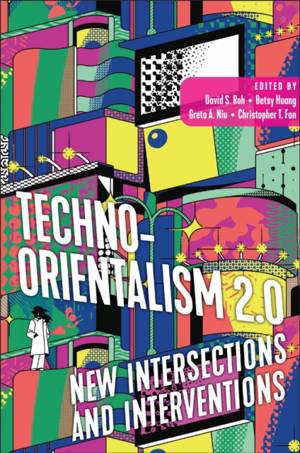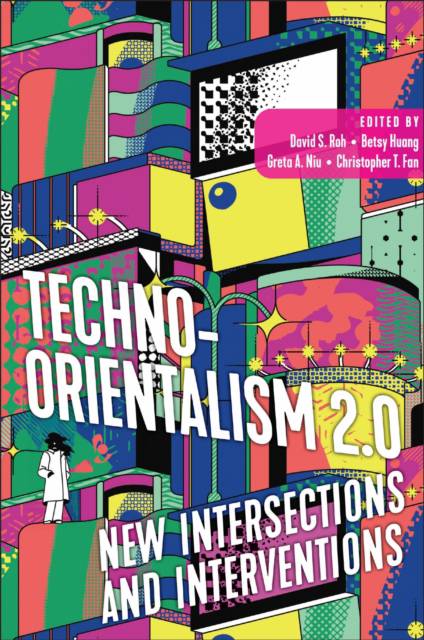
- Afhalen na 1 uur in een winkel met voorraad
- Gratis thuislevering in België vanaf € 30
- Ruim aanbod met 7 miljoen producten
- Afhalen na 1 uur in een winkel met voorraad
- Gratis thuislevering in België vanaf € 30
- Ruim aanbod met 7 miljoen producten
Zoeken
Techno-Orientalism 2.0
New Intersections and Interventions
€ 55,45
+ 110 punten
Omschrijving
Building on the groundbreaking Techno-Orientalism: Imagining Asia in Speculative Fiction, History, and Media, published by Rutgers University Press in 2015, Techno-Orientalism 2.0: New Intersections and Interventions addresses the impact of a volatile post-pandemic present on speculative futures by and about Asians. The backdrop of this highly anticipated follow-up is a world that is radically different than in 2015: COVID-19, threats of a "new cold war" with China, Russia's invasion of Ukraine, and the reemergence of "strong man" politics around the world. An essential volume for this new critical juncture in Asian American history, Techno-Orientalism 2.0 catalogs intersectional dialogue with discourses such as Afrofuturism, Indigenous futurities, environmentalism, and disability studies. It also engages with recent high-profile and lesser-known works of Asian and Asian American speculative fiction, film, television, anime, art, music, journalism, architecture, state-sponsored policies and infrastructural projects, and the now-dominant China Panic.
Specificaties
Betrokkenen
- Uitgeverij:
Inhoud
- Aantal bladzijden:
- 392
- Taal:
- Engels
- Reeks:
Eigenschappen
- Productcode (EAN):
- 9781978839212
- Verschijningsdatum:
- 15/07/2025
- Uitvoering:
- Paperback
- Formaat:
- Trade paperback (VS)
- Afmetingen:
- 156 mm x 234 mm
- Gewicht:
- 544 g

Alleen bij Standaard Boekhandel
+ 110 punten op je klantenkaart van Standaard Boekhandel
Beoordelingen
We publiceren alleen reviews die voldoen aan de voorwaarden voor reviews. Bekijk onze voorwaarden voor reviews.






